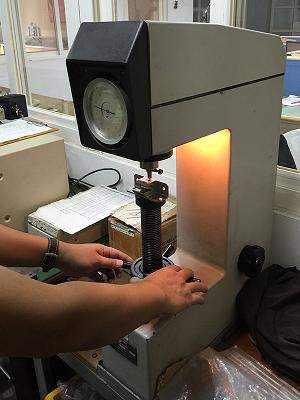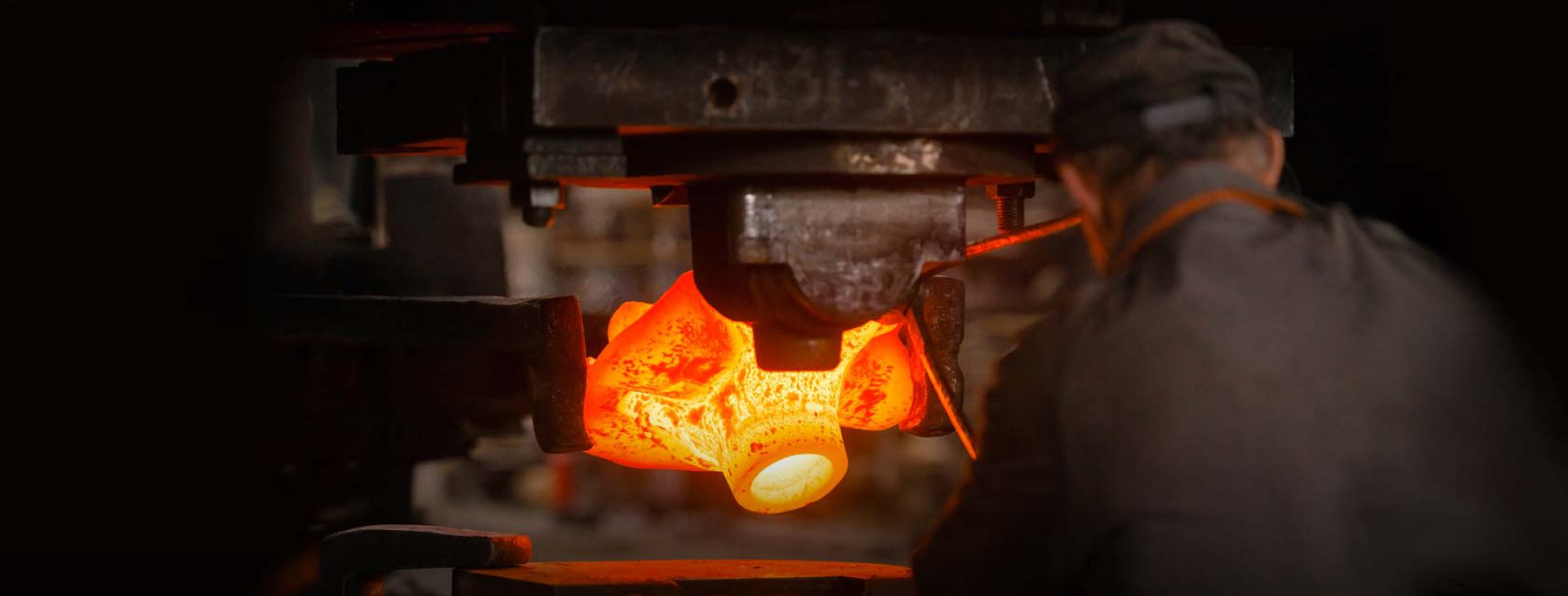Hardness is the measurement of the resistance of a metal to plastic deformation. The process for checking the hardness of a material may vary but it usually consists of the use of an indentation that is measured in a forging. Hardness is the property that shows a materials ability to resist permanent deformation when it is under load. The greater the hardness of a material the greater the material will resist deformation. At CFS Forge, we are able to perform below types of hardness testing: Brinell and Rockwell Hardness Testing.
Brinell Hardness Testing
 The Brinell hardness test is measured by forcing a hardened steel or carbide sphere into a steel forging part under a specified load. The indentation that is created in the metal is measured for its diameter. A Brinell hardness reading is obtained by dividing the load used (in Kg) by the area of the indentation in the forging being tested (in square mm). When measuring a forged steel, a 500Kg load is used, along with a sphere of 10mm. The brinell hardness value of steel forgings will be shown in HB.
The Brinell hardness test is measured by forcing a hardened steel or carbide sphere into a steel forging part under a specified load. The indentation that is created in the metal is measured for its diameter. A Brinell hardness reading is obtained by dividing the load used (in Kg) by the area of the indentation in the forging being tested (in square mm). When measuring a forged steel, a 500Kg load is used, along with a sphere of 10mm. The brinell hardness value of steel forgings will be shown in HB.
Rockwell Hardness Testing
It uses a bullet-shaped or cone-shaped penetrating body. In a Rockwell test, hardness is interpreted as “resistance to local penetration”. The test determines the depth to which a penetrating body (spherical or cone-shaped) has penetrated after being tested with a standard testing load. This results in a hardness number that can be read off immediately after removing the testing load. Rockwell hardness is expressed as a number on a particular scale. The Rockwell scales used most often for steel are the B and C scales. The rockwellhardness value of steel forgings will be shown in HRC.
Vickers Hardness
In this hardness test, a diamond pyramidal penetrating body with a top angle of 136° is pressed into the steel forging part with a given force (F). Within a few seconds, the force is built up and maintained for a period of between 10 and 15 seconds. After the removal of the force, both diagonals are measured using a measurement microscope. The hardness can be assessed by determining the surface area deflected using the Vickers formula.
Due to the low hardness of material itself, for any higher hardness, we could achieve by heat treatment, such as quenching and tempering, carburizing treatment, carbonitriding treatment, etc.
At CFS Forge, hardness testing will be performed when there is any hardness requirement on steel forgings. The value of hardness after testing must be within the given range. And relevant hardness testing report should be provided to our customer. In addition to hardness testing, we could also do quality control on other respects such as dimensions, material, tensile strength, etc. Contact us if you have any products with hardness requirement!

